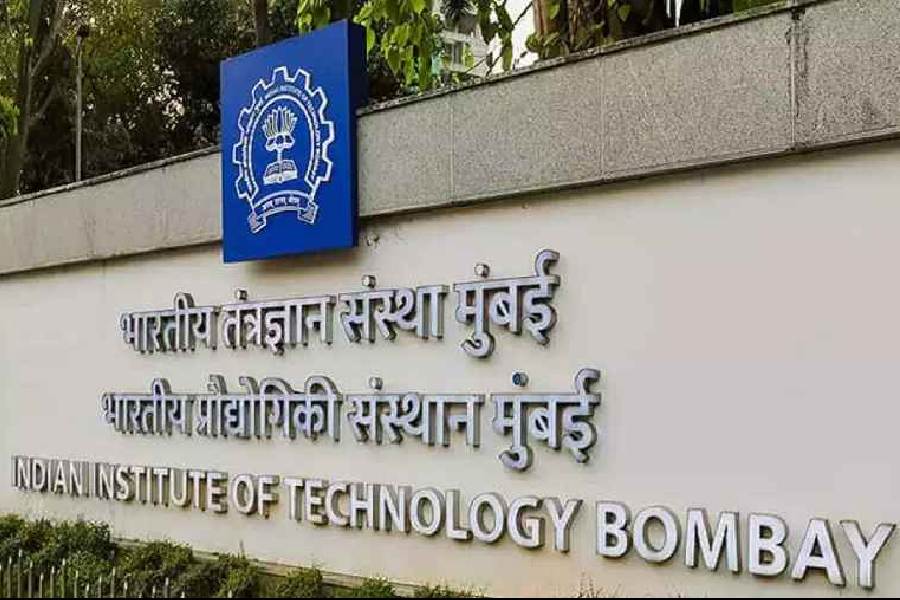New Delhi, Sept. 23: The Supreme Court has said the Uphaar fire case may have called for "a higher sentence" but its hands were tied by the ceiling inherent in the law that was invoked to try the Ansal brothers.
The reasoning has raised questions why the courts did not use their powers to ensure that the brothers were tried under other sections that carry harsher punishment.
Also, if the Ansals pay a fine before November 19, their jail term would be what has been already served - five months and 20 days, far lower than the maximum two years that the law permits.
The Supreme Court's explanation came in a detailed judgment that was made public today, more than a month after the Ansal brothers were told they can avoid further imprisonment by paying a fine of Rs 30 crore each for causing the death of 59 people in the fire in the Delhi movie hall in 1997. The sentence had caused widespread outrage in the country.
The detailed court order has come at a time the relatives of the victims were pinning their hope on a review petition that is expected to challenge the final verdict.
The order of Justices A.R. Dave, Kurian Joseph and A.K. Goel said: "We are conscious of the fact that matter of this magnitude may call for a higher sentence, but the court has to limit itself to the choice available under the law prescribing sentence. The fact that remains is that the maximum sentence prescribed under the law is period of two years...."
The Ansals were convicted under IPC Section 304 A (causing death due to rash and negligent act). The section provides for a maximum jail term of only two years.
The Association of Victims of Uphaar Tragedy (AVUT) and the CBI had earlier pleaded in the Supreme Court for invoking IPC Section 304-Part I, which carries a maximum punishment of up to 10 years.
Such a change was incorporated in the hit-and-run case involving actor Salman Khan. Initially, the actor was charged under Section 304(A) but a court later invoked Section 304-Part 1. It was under this section that Salman was sentenced to five years in jail. The appeal is pending.
In the Uphaar case, the apex court detailed the sequence of events in the high court and before a two-judge bench of the Supreme Court.
"The high court had chosen, in the facts and circumstances of the case, to award sentence of one year which has been approved by (T.S.) Thakur, (Justice). In the dissenting opinion by Misra, (Justice Gyan Sudha Misra), the modification is that the sentence be enhanced but giving an option to pay substantial amount in lieu of the enhanced sentence with further direction to reduce the jail sentence to the period already undergone, if the amount of fine in lieu of enhanced sentence is paid.
"We are in agreement with the view expressed by Misra, J. that sentence awarded by the high court needs to be enhanced to the maximum period of two years under Section 304-A but in lieu of additional period of sentence of one year, the substantial amount of fine needs to be imposed," said Justice Dave, writing the judgment.
Justices Thakur and Misra, who retired later, had given a split verdict on the quantum of punishment. While Justice Thakur had upheld the sentence of one year imposed by Delhi High Court, Justice Misra said the accused deserved a punishment of two years.
But she added a rider that if the accused paid Rs 100 crore as fine, it would be sufficient to sentence Gopal Ansal to one year in jail while the elder brother Sushil's imprisonment can be limited to that already undergone in view of his advanced age of 74.
After the split verdict, the matter was referred to the three-judge bench, which imposed a cumulative fine of Rs 60 crore, not Rs 100 crore as suggested by Justice Misra.
The larger bench also felt that the leniency shown to Sushil could be extended to Gopal on parity.
"We are further of the view that in case the said amount of fine is paid, the sentence should be reduced to the period already undergone, as indicated by Misra, J. in the case of Sushil Ansal. On the principle of parity, the case of Gopal Ansal will stand on the same footing as that of Sushil Ansal," the three-judge bench said.










